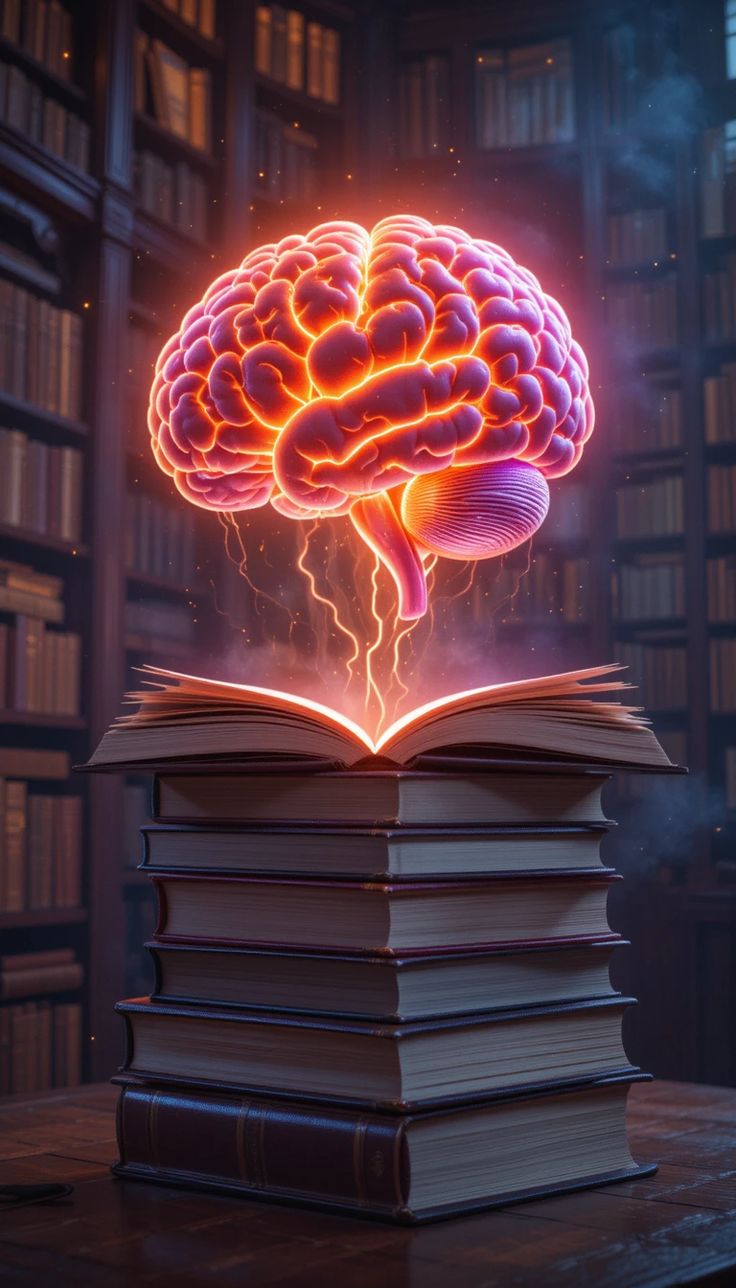Unlocking the Mind: How Knowledge Transforms the Brain in the Age of Information

Failure often feels like a devastating end. It’s the sinking feeling after losing a job, facing a rejection, or watching a dream crumble. Yet, failure may not be the end at all, it could be the hidden beginning of something far greater. Like a cracked seed pushing through the soil to bloom or a phoenix rising gloriously from its ashes, setbacks have a way of transforming us. They strip away illusions, expose our vulnerabilities, and challenge us to grow stronger than before.
Success is often celebrated as the ultimate goal, but it is not built on victories alone. True growth comes from the soil enriched with mistakes, lessons, and perseverance. When we embrace what psychologist Carol Dweck calls a growth mindset, we stop viewing failure as a verdict and start seeing it as valuable feedback. Instead of being paralyzed by fear, we use setbacks to develop new skills, refine strategies, and evolve into stronger versions of ourselves.
Why Failure Often Teaches More Than Success
Carol Dweck’s groundbreaking work on mindsets shows how people with a growth mindset believe their abilities can improve through effort, learning, and persistence. On the other hand, those with a fixed mindset believe talent is innate and unchangeable, leading them to avoid challenges out of fear of failure. Her research with Chilean students revealed that even underprivileged youth who believed they could grow academically performed as well as wealthier peers with fixed mindsets, proving that attitude shapes outcomes more than circumstances.
Neuroscience further validates this. Studies show that people who see failure as an opportunity exhibit heightened brain activity when they make mistakes, allowing them to absorb lessons and improve performance. Those with a fixed mindset, by contrast, tend to shut down when facing errors, missing the chance to learn.
Positive psychology offers even more insight. Barbara Fredrickson’s Broaden-and-Build Theory explains that positive emotions like curiosity and hope.expand our thought processes and strengthen our resilience. Broaden-and-Build theory shows that this means that those who remain optimistic during setbacks recover faster and become more adaptable.
Resilience research adds another layer. Time on resilience science shows that deliberate practices like mindfulness, self-reflection, and surrounding oneself with supportive networks actually rewire the brain’s stress-response system, making it easier to handle challenges without breaking down.
Perhaps the most fascinating insight comes from the concept of Post-Traumatic Growth (PTG), developed by psychologists Richard Tedeschi and Lawrence Calhoun. Their studies show that adversity can lead to profound personal development, greater appreciation of life, deeper relationships, and stronger inner strength. Over half of trauma survivors report positive growth following their struggles. This growth rarely arises from comfort; it is forged in the fires of difficulty.
Stories of Resilience: How Failure Became Fuel
.jpeg)
Image credit: KSM king Solomon’s Mine
History is rich with examples of individuals who turned devastating failures into extraordinary comebacks.
Take Thomas Edison, who experimented with thousands of filaments before inventing the lightbulb. When asked about his repeated failures, Edison famously replied, “I have not failed. I’ve just found 10,000 ways that won’t work.” This perspective, viewing setbacks as lessons, was critical to his innovation.
J.K. Rowling, the author of Harry Potter, faced poverty and depression while receiving multiple rejection letters from publishers. Instead of giving up, she persevered, and her story went on to capture millions of hearts worldwide.
Consider Steve Jobs, who was fired from Apple, the very company he co-founded. Many saw this as the end of his career, but Jobs turned the setback into a new beginning. He founded NeXT and Pixar, returning years later to lead Apple to unprecedented success. Jobs described this experience as “the best thing that ever happened to me” because it freed him to innovate without fear (peopledevelopmentmagazine.com).
Culture
Read Between the Lines of African Society
Your Gateway to Africa's Untold Cultural Narratives.
Michael Jordan, often considered the greatest basketball player of all time, was once cut from his high school team. Instead of quitting, he trained harder, turning rejection into motivation for greatness (GrowthThinkable).
Media mogul Oprah Winfrey was fired early in her career and told she lacked what it took for television. Yet she used that criticism to build one of the most successful and influential media empires in the world (NECRU).
Entrepreneur Arianna Huffington faced over 30 rejections before founding The Huffington Post, which revolutionized online journalism (AllMeld).
What unites these stories is what psychologist Angela Duckworth calls grit a blend of passion and perseverance for long-term goals. Duckworth’s research demonstrates that grit, more than raw talent, predicts success in diverse fields.
How You Can Turn Failure into Growth
If failure holds lessons that success cannot teach, how do you harness it?
Reflect before reacting – Take time to analyze what went wrong and extract insights, instead of rushing to move on.
Separate identity from performance – Think “My strategy failed,” not “I am a failure.”
Build resilience deliberately – Practice habits like meditation, journaling, and seeking social support. These techniques strengthen your ability to withstand future challenges (Time on resilience).
Reframe your narrative – Ask: What does this teach me? What new strength have I gained? This self-reflection transforms pain into purpose.
Adopt the word ‘yet’ – As Dweck suggests, replace “I can’t do this” with “I can’t do this yet.” It shifts perspective from defeat to possibility.
Why This Lesson Matters More Than Ever
We live in a world that celebrates perfect images, overnight success, and highlight reels. But behind every triumph are countless unseen setbacks. The ability to rise from failure with greater wisdom is what separates those who thrive from those who merely survive.
Especially in today’s uncertain world marked by economic fluctuations, rapid technological shifts, and social changes the skill of turning setbacks into stepping stones is invaluable. Those who master this art become innovators, leaders, and creators of change.
Failure should not define you, it should refine you. When faced with adversity, your response determines your growth. By embracing failure as feedback, you turn wounds into wisdom and pain into progress.

Culture
Read Between the Lines of African Society
Your Gateway to Africa's Untold Cultural Narratives.
Image credit: Pinterest
In Conclusion
Failure is not the enemy. It is an essential teacher, a sculptor of character, and a gateway to resilience. When we stop fearing mistakes and start learning from them, we unlock the true potential of our lives. Setbacks sharpen our strategies, strengthen our resolve, and remind us that every ending is just the beginning of a new chapter.
So, the next time life knocks you down, remember: it might be preparing you for the breakthrough that will define your story.
You may also like...
When Sacred Calendars Align: What a Rare Religious Overlap Can Teach Us

As Lent, Ramadan, and the Lunar calendar converge in February 2026, this short piece explores religious tolerance, commu...
Arsenal Under Fire: Arteta Defiantly Rejects 'Bottlers' Label Amid Title Race Nerves!

Mikel Arteta vehemently denies accusations of Arsenal being "bottlers" following a stumble against Wolves, which handed ...
Sensational Transfer Buzz: Casemiro Linked with Messi or Ronaldo Reunion Post-Man Utd Exit!

The latest transfer window sees major shifts as Manchester United's Casemiro draws interest from Inter Miami and Al Nass...
WBD Deal Heats Up: Netflix Co-CEO Fights for Takeover Amid DOJ Approval Claims!

Netflix co-CEO Ted Sarandos is vigorously advocating for the company's $83 billion acquisition of Warner Bros. Discovery...
KPop Demon Hunters' Stars and Songwriters Celebrate Lunar New Year Success!

Brooks Brothers and Gold House celebrated Lunar New Year with a celebrity-filled dinner in Beverly Hills, featuring rema...
Life-Saving Breakthrough: New US-Backed HIV Injection to Reach Thousands in Zimbabwe

The United States is backing a new twice-yearly HIV prevention injection, lenacapavir (LEN), for 271,000 people in Zimba...
OpenAI's Moral Crossroads: Nearly Tipped Off Police About School Shooter Threat Months Ago
ChatGPT-maker OpenAI disclosed it had identified Jesse Van Rootselaar's account for violent activities last year, prior ...
MTN Nigeria's Market Soars: Stock Hits Record High Post $6.2B Deal

MTN Nigeria's shares surged to a record high following MTN Group's $6.2 billion acquisition of IHS Towers. This strategi...
